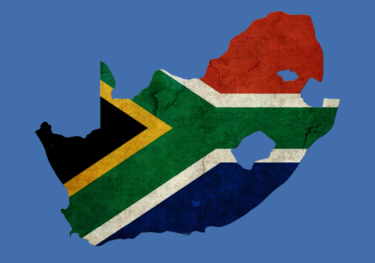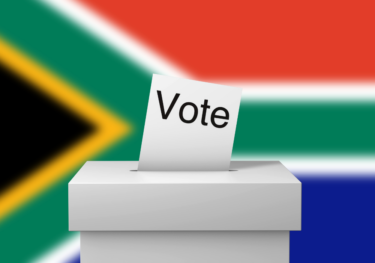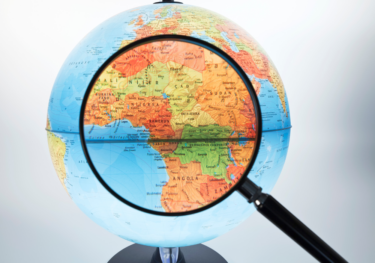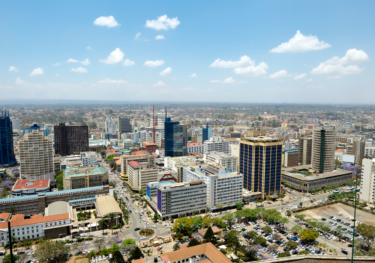Africa Insight | 03 May 2024
South Africa: Elections 2024 | ‘ANC & friends’ election scenario

Jacques Nel
Head of Africa Macro

Timely insight on the continent’s most pressing issues
African political economy is consistently evolving both at a national and continental level. Robust data analysis needs to be supplemented with a deep understanding of politics on the continent. Our Africa Insights provide concise views on the most important economic and political developments on the continent, with the aim of allowing for more informed decision-making.
Our latest video
(J.Nel) Hello, and thanks for joining us for this Africa Insight. Today we’re going to be discussing the first of a series of four scenarios on South Africa’s general elections that ought to be held next month. So next month’s general elections are said to be a game changer, just because all expectations are that the ANC is going to lose its majority.
My name is Jacques Nel. I’m joined by my colleague Louw. Today’s scenario is essentially our baseline. Louw, can you give us an overview of what we expect?
(L.Nel) You’re quite right, all expectations are that the ANC is going to dip below 50% for the first time. It has been in power since 1994, but over the last three election cycles, we have seen a drop in support and, an accelerating, drop in support, which suggests that even back in 2019, that 50% was going to be difficult to achieve in 2024.
Events over the last five years have done very little to convince people that the ANC is good at governing the country, and one can expect that their return is not just going to be below 50, but perhaps, several percentage points below 50. Recent polling seems to suggest that the support would go as low as the high 30s. We would suggest that would not be the case. It would be such a precipitous drop in support that it would be quite unprecedented. But we in our first and in our baseline scenario, we assume that the support, is within the 46 to 49% range, in which case the ANC will have to go in search of coalition partners.
In this scenario, their deficit in the National Assembly, the 400 seat National Assembly, is about 1516 seats. And we believe that will be able to make up that deficit by partnering a series of smaller parties. yeah, we can see them potentially partnering with parties like the in Court of Freedom Party, the Patriotic Alliance, parties like Al Jama-ah, GOOD, It needs to be said that, our current cabinet already features an opposition leader, in that cabinet. And Patricia de Lille of the GOOD Party is already a member of government. And so parties like that, I think, would be willing to go into a coalition with the ANC with a promise of, a ministerial appointment, maybe a senior position in parliament and for the Inkatha Freedom Party would probably be the largest of these, these partners, may be a power sharing agreement, that favors them in their home base of KwaZulu Natal would make that scenario attractive for the IFP.
(J.Nel) And do you think the scenario has any significant policy implications on the policy front?
(L.Nel) One can’t imagine these small parties, specifically the one and two seat parties, being able to exert an awful lot of pressure on the on the ANC as such a massive, overwhelming majority partner. So in that sense, the ANC will continue to, to rule and unfettered, having to make concessions along the way, but not significant concessions. policy differences between those parties and the ANC are also not so significant. And so besides not really having an awful lot of, bargaining power, these parties don’t differ philosophically that much from the ANC. And so that’s why we say it’s very much a continuity, scenario where the ANC continues to govern, in a different form. But what that will have the impact of that on the economic front, perhaps you’re better placed to comment on that very essential and very important question.
(J.Nel) I think the important point is that it’s, a scenario of continuity. So on growth, we don’t see any major changes. Supply side constraints remain the biggest concern. Energy transport though is addressed, but it’s in a different way. So it’s going to take very long to address those situations. Going growth remains about one just under 1.5% per annum. I do think markets are also pricing in this scenario. So we might see some volatility in the rand and yields in the lead up to elections. But after the dust settles, we don’t expect the rand or yields to deviate too much from their current levels. And they might actually be a slight improvement due to this uncertainty. The risk premium just dropping a bit. Just lastly government finances again continuity weak growths containing revenue a lot of borrowing is really pushing up recurrent spending. So public debt is expected to increase, to stabilize just under 90% of GDP over the medium to long term. And with credit rating downgrades remaining a risk. All right. Let’s wrap it up there. You can find the link to the full research briefing below. Next week we’ll be discussing what many consider the downside scenario, which is an ANC and EFF coalition. Thanks again for joining. Goodbye.
Access the full report here
Tags:
Related Content

South Africa: Elections 2024 | ‘ANC & friends’ election scenario
This Research Briefing sets out the first of four scenarios for South Africa's general election on May 29. In this scenario, the ANC wins over 46% of the vote share at the national level, and forms a government by working with small, constituency-based parties.
Find Out More
Africa: Elections in 2024
This Research Briefing provides an overview of the most consequential elections being run in Africa this year: South Africa's general election, presidential and parliamentary elections in Mozambique, and presidential races in Senegal, Ghana, and Rwanda.
Find Out More
Global sustainability scramble ushers in a new era for South Africa
Africa's mineral riches are central to its history. However, the race to combat climate change has reignited interest in the continent given its vast deposits of critical minerals. Southern Africa, in particular, has received much attention with the development of several key transport corridors with the almost explicit purpose of scaling up the availability of these minerals on international markets. We set out to investigate the economic potential of the region in terms of its critical minerals while taking into consideration what the establishment of these corridors means for the regional economy.
Find Out More
Africa: The long-term outlook for sub-Saharan African cities
Sub-Saharan cities will lead the way for GDP growth, but similarly strong demographic changes will limit gains in GDP per person, reaffirming the region’s position at the lower end of the development spectrum.
Find Out More